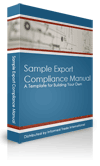Chi Mak Case Verdict—Guilty

“Mak said he believed he was doing nothing wrong by giving the documents to his brother to take out of the country because they were papers that had been presented previously at international conferences. The government, however, alleged the documents were export-controlled and couldn’t fall into foreigners’ hands.”
This is the case that may redefine the meaning of “public domain†read the excellent ExportLawBlog coverage on this. The following is a AP report from the cox.net.Â
| California Jury Convicts Engineer of Conspiring to Steal U.S. Military Secrets for ChinaÂ
05-10-2007 8:05 PM SANTA ANA, Calif. (Associated Press) –Â Jurors convicted a Chinese-born engineer Thursday of conspiring to export U.S. defense technology to China, including data on an electronic propulsion system that could make submarines virtually undetectable. Â Chi Mak also was found guilty of acting as an unregistered foreign agent, attempting to violate export control laws and making false statements to the FBI. Prosecutors had dropped a charge of actually exporting defense articles.When the verdict was read, Mak at first showed no emotion but then appeared to hold back tears as defense attorney Marilyn Bednarski teared up and rubbed his back. Defense attorney Ron Kaye’s face was flush. Mak faces up to 35 years in prison when he is sentenced Sept. 10.
The government accused Mak, a naturalized U.S. citizen, of taking thousands of pages of documents from his defense contractor employer, Power Paragon of Anaheim, and giving them to his brother, who passed them along to Chinese authorities over a number of years. Â Mak, 66, was arrested in 2005 in Investigators said they found three encrypted CDs in their luggage that contained documents on a submarine propulsion system, a solid-state power switch for ships and a Power Point presentation on the future of power electronics. Chi Mak’s wife, brother and other relatives also have been indicted and are to go on trial together June 5. Mak acknowledged during the trial that he copied classified documents from his employer and kept copies in his office. He maintained he didn’t realize at the time that making the copies was illegal. Kaye said the defense team still believes Mak is innocent. “We believe the facts of the case have been manipulated, and we believe Mr. Mak didn’t necessarily get a fair trial,” Kaye said. In many instances, the government was allowed to present classified information to U.S. District Judge Cormac Carney in his chambers, and the defense team did not receive some classified information about a request by the FBI to bug Chi Mak’s house, Kaye said. “We were confident from the start and we’re very happy with the verdict,” Assistant U.S. Attorney Greg Staples said. Â Staples said the government may use the verdict to try to negotiate plea bargains with Mak’s indicted family members, who pleaded not guilty.The six-week trial featured testimony from a parade of FBI agents, U.S. Navy officials and encryption and espionage experts.Key to the case was the government’s allegation that Mak confessed to the conspiracy _ and even identified his Chinese government handler and specific restricted documents _ during an untaped jailhouse interview two days after his arrest. Mak testified he never confessed during that interview, but admitted that he lied repeatedly in an earlier taped interview about the number of times he had visited China and when he told authorities he didn’t have friends or relatives there. He said he felt intimidated during the interrogation. Â “This is why I lied,” he said. “They were pushing me that night.” Mak’s attorneys had focused on the propulsion system documents found in his brother’s luggage at Los Angeles International
 Mak said he believed he was doing nothing wrong by giving the documents to his brother to take out of the country because they were papers that had been presented previously at international conferences. The government, however, alleged the documents were export-controlled and couldn’t fall into foreigners’ hands. |
Posted on May 10th, 2007 by keeton
Filed under: News

